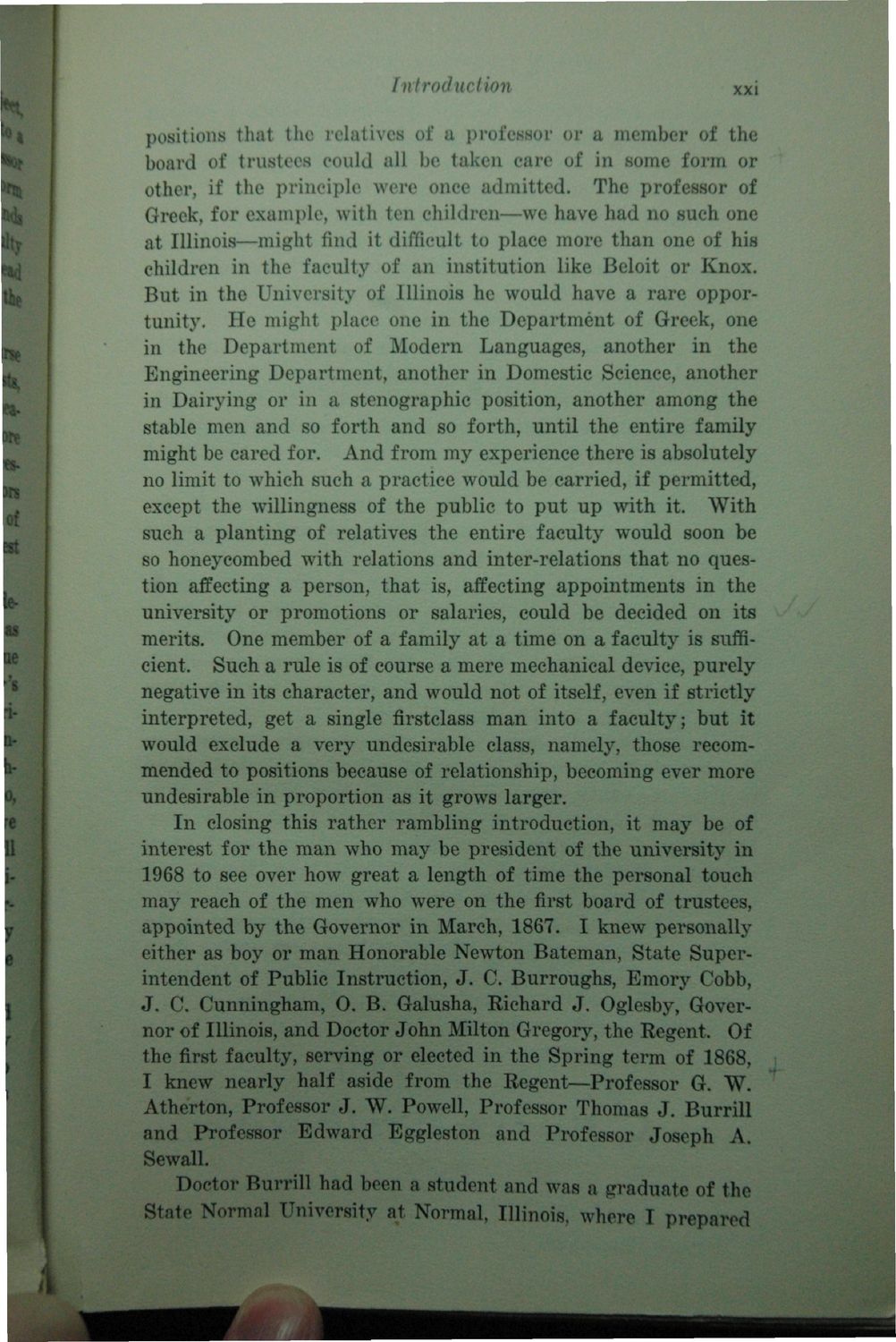| |
| |
Caption: Book - History of the University (Powell)
This is a reduced-resolution page image for fast online browsing.

EXTRACTED TEXT FROM PAGE:
Introduction xxi positions that the relatives of a professor or a member of the board of trustees could all be taken care of in some form or other, if the principle were once admitted. The professor of Greek, for example, with ten children—we have had no such one at Illinois—might find it difficult to place more than one of his children in the faculty of an institution like Beloit or Knox. But in the University of Illinois he would have a rare opportunity. He might place one in the Department of Greek, one in the Department of Modern Languages, another in the Engineering Department, another in Domestic Science, another in Dairying or in a stenographic position, another among the stable men and so forth and so forth, until the entire family might be cared for. And from my experience there is absolutely no limit to which such a practice would be carried, if permitted, except the willingness of the public to put up with it. With such a planting of relatives the entire faculty would soon be so honeycombed with relations and inter-relations that no question affecting a person, that is, affecting appointments in the university or promotions or salaries, could be decided on its merits. One member of a family at a time on a faculty is sufficient. Such a rule is of course a mere mechanical device, purely negative in its character, and would not of itself, even if strictly interpreted, get a single firstclass man into a faculty; but it would exclude a very undesirable class, namely, those recommended to positions because of relationship, becoming ever more undesirable in proportion as it grows larger. In closing this rather rambling introduction, it may be of interest for the man who may be president of the university in 1968 to see over how great a length of time the personal touch may reach of the men who were on the first board of trustees, appointed by the Governor in March, 1867. I knew personally either as boy or man Honorable Newton Bateman, State Superintendent of Public Instruction, J. C. Burroughs, Emory Cobb, J. C. Cunningham, 0. B. Galusha, Richard J. Oglesby, Governor of Illinois, and Doctor John Milton Gregory, the Regent. Of the first faculty, serving or elected in the Spring term of 1868, I knew nearly half aside from the Regent—Professor G. W. Atherton, Professor J. W. Powell, Professor Thomas J, Burrill and Professor Edward Eggleston and Professor Joseph A. Sewall. Doctor Burrill had been a student and was a graduate of the State Normal University at Normal, Illinois, where I prepared
| |